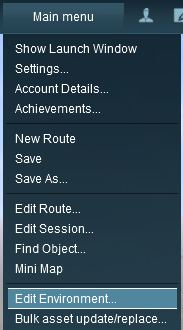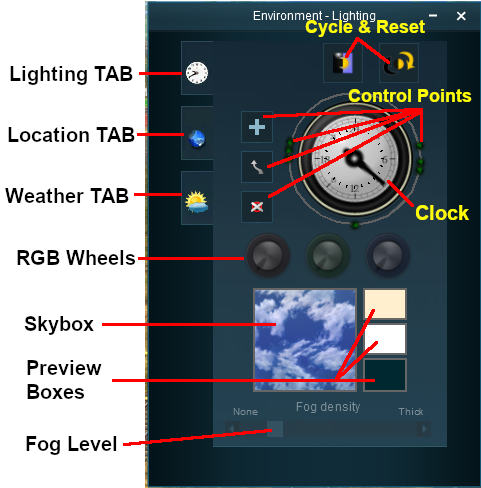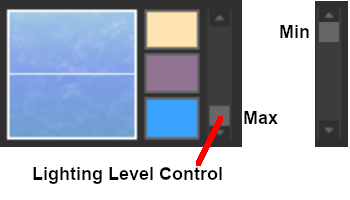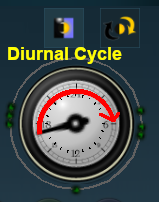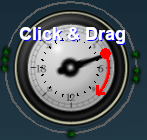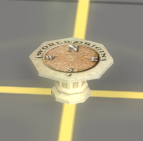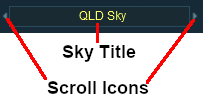How to Use Environment Tools
m (→Mixing Colours) |
(→Mixing Colours) |
||
| Line 315: | Line 315: | ||
All other colours are made by mixing ''different'' quantities of the three colours.</td> | All other colours are made by mixing ''different'' quantities of the three colours.</td> | ||
</tr> | </tr> | ||
| − | <tr> | + | <tr valign="top"> |
| − | <td colspan="3"><font size="3">'''Example:'''</font>< | + | <td colspan="3"> |
| − | Creating a colour suitable for water (RGB values are approximate)</td> | + | <table cellpadding="4" bgcolor=#c1e7e7> |
| + | <tr valign="top"> | ||
| + | <td>[[file:DotPoint.JPG]]</td> | ||
| + | <td>Setting both the '''Ambient''' and '''Sun''' colours to different shades of grey for the clock control points can solve many brightness issues</td> | ||
| + | </tr> | ||
| + | </table></td> | ||
| + | </tr> | ||
| + | </table> | ||
| + | <br> | ||
| + | <table cellpadding="4" bgcolor=#ffffb0> | ||
| + | <tr valign="top"> | ||
| + | <td>[[file:NotePad.PNG]] <font size="3">'''Example:'''</font></td> | ||
| + | </tr> | ||
| + | <tr valign="top"> | ||
| + | <td>Creating a colour suitable for water (RGB values are approximate)</td> | ||
</tr> | </tr> | ||
<tr> | <tr> | ||
Revision as of 11:18, 12 October 2018
Users of Trainz Railroad Simulator 2019 (known as TRS19) will find a tutorial specific to that product at TRS19 Environment and Lighting Tutorial
Contents |
| Notes: The Environment Tools are used to set:-
|
|
| The Time of Day is set using Session rules such as |
| Notes: There is no Save button on the Environment Tools Window. As soon as you enter or select a setting it will be saved. When finished editing simply click the window Off button. |
| The World Origin and Date settings are used to set the current season e.g. January = Summer in the Southern Hemisphere and Winter in the Northern Hemisphere |
The Environment Tool
Lighting
The Lighting Tools control the ambient, sun and water colours. This tool tab is opened by default whenever the Environmental Editor is opened.
Light and Time
| The dial shown is a 24 hour clock that sets the lighting conditions at selected times of the day and night |
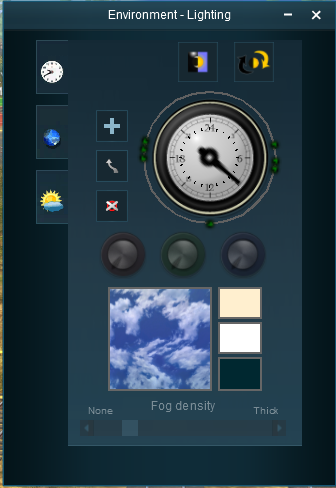 |
The Time of Day
|
||||||||||||
Setting the Lighting Conditions
Colour Control Points
The ring around the dial contains a number of green dots.
| Each dot is a Control Point that sets the specific Red, Green and Blue colour values, and other lighting features, at the time shown on the clock |
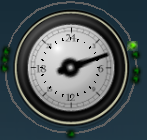 |
|
||||||
| Each colour value can be altered by dragging its needle point to a new position around the dial. Each new position will change the balance between the 3 colours and will alter the lighting displayed in the scene at that particular time. |
Types of Lighting
| Notes: Each control point stores the RGB values for three different types of lighting in the scene.
|
The 3 boxes below the colour wheels and next to the Sky box show the colour effects created for each type of lighting at the selected time.
Ambient Colour
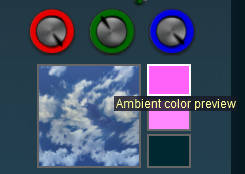 |
|
||||||
Sun Colour
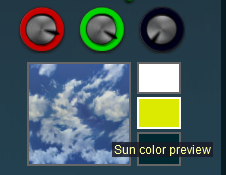 |
|
||||||
Water Colour
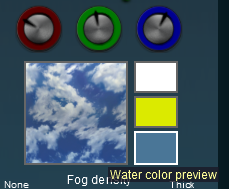 |
|
||||||||
Mixing Colours
| Notes: Getting the "right colours" can be more of an art than a science. To set the exact colour you want means mixing the correct quantities of Red, Green and Blue. Each of these colours has 256 different values from 0 to 255 that, when combined, produce over 16 million different possible colours - but many monitors and most eyeballs will not be able to tell the differences between many of those 16 million colours. |
Setting all three colours to the same values will produce monotones from Black to White with 254 different shades of gray between those two tones.
|
| R = 0; G = 0; B = 0 | R = 128; G = 128; B = 128 | R = 255; G = 255; B = 255 | ||
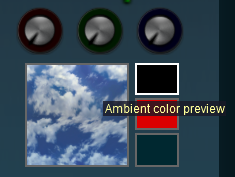 |
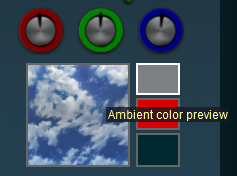 |
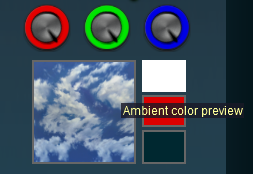 |
||
| Black | 50% Gray | White | ||
| All other colours are made by mixing different quantities of the three colours. | ||||
|
||||
| Creating a colour suitable for water (RGB values are approximate) | ||
 |
Starting with pure Blue R = 0; G = 0; B = 255 |
|
 |
Add pure Green to make the colour Cyan R = 0; G = 255; B = 255 |
|
 |
Scale back (darken) the Green R = 0; G = 155; B = 255 |
|
 |
Scale back a bit more R = 0; G = 128; B = 255 |
|
 |
Add some Red R = 75; G = 128; B = 255 |
|
TRS19 Lighting Level Control
TRS19 users have an additional control that is placed next to the Ambient, Sun and Water colour boxes. This sets the overall brightness or lighting level for each control point.
|
|||||||
Resetting the Lighting Conditions
| All the lighting colour settings can be reset back to the TANE default colours. |
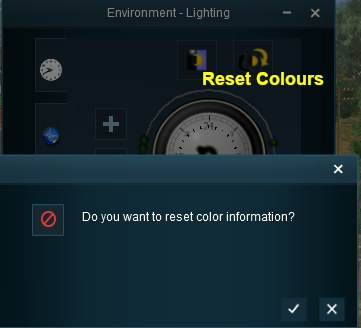 |
|
||||||
Adding a New Control Point
| New control points can be added to the clock dial |
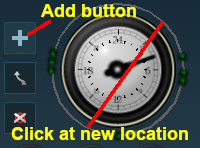 |
|
||||||||
| Notes: During the running of a Session the lighting will "morph" or "transform" at a steady rate from the set of colour values at one control point to the set of colour values at the next control point. Click the Diurnal Cycle button for a demonstration.
The places where you would need faster dramatic transitions would be at dawn (around 06:00) and dusk (around 18:00) |
Deleting a Control point
| Existing control points can be deleted |
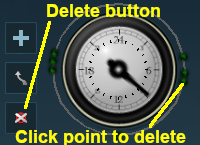 |
|
||||||||
Moving a Control point
| Existing control points can be moved |
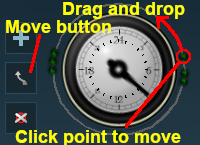 |
|
||||||||
The Skybox
| The Skybox sets the sky colours in three different regions of the sky at the selected time of day, as shown in the extreme example below |
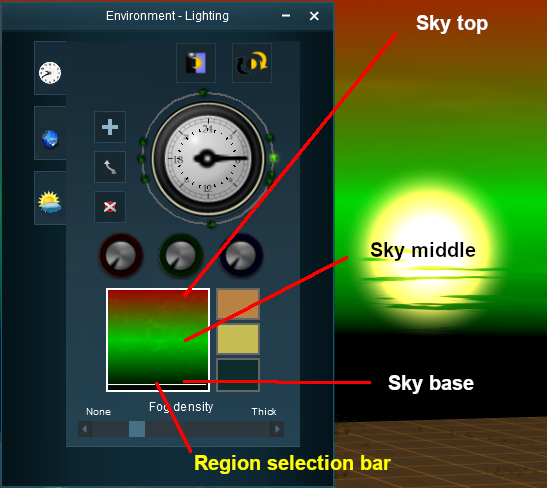 |
|
||||||||
Fog Control
| This controls the level of "fog" in the scene |
|
|
||||||||
Location
| The Location Tools control the geographic and date (season) data for the Route and Session |
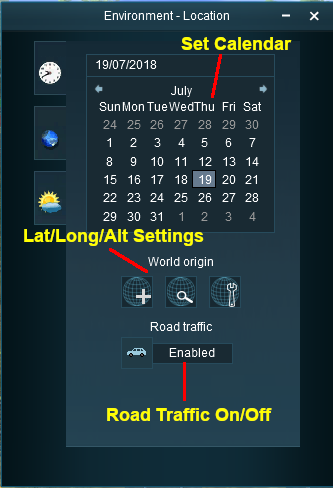 |
Set DateThe top section is a standard calendar selection tool that allows you to set the month and the day of the month. The only effect this has in TANE is to set, with the geographic coordinates, the season of the year.
Set World OriginThe middle section is the World Origin Tool and sets the geographic location, including the altitude, of the route using a World Origin marker that is only visible in Surveyor.
|
|||||||||||||
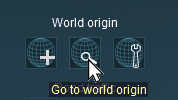 |
Click the Go to world origin icon to move the Surveyor screen so that it is centred on the World Origin marker. |
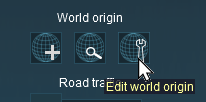 |
Click the Edit world origin icon to set or edit the World Origin data. See Editing the World Origin below. |
Editing the World Origin
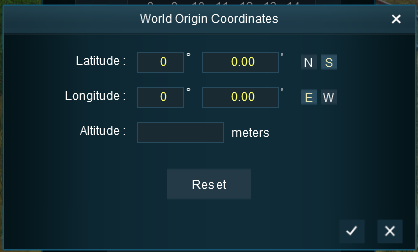 |
Enter the geographic data for the world origin.
|
Deleting the World Origin
| There is no delete button for the World Origin marker, but you can still delete it |
|
|
|
 |
Steps:
|
|
|
|
| Notes: All routes MUST have a World Origin. If you delete the marker then the World Origin will be hidden and will take the default coordinates of latitude 52.45 N, longitude 13.3 E, altitude 0 metres - which places it in Berlin(??). |
Traffic Control
| This tool simply turns the road traffic ON and OFF |
| Notes: This road traffic tool:-
|
 |
|
||||||
Weather and Water
To set the water colour, refer to the Setting the Lighting Conditions section above.
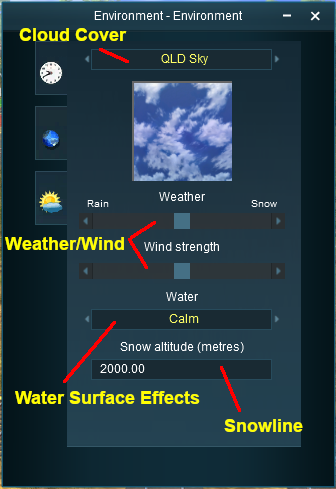 |
Set the Sky
The box below the sky title will give a preview of the selected sky. Set the Weather
|
||||||||||||||||||||
Wind Strength
| This setting only effects SpeedTrees |
|
|
|
| Settings:
|
|
|
|
|
Set the Water Surface
| This sets the water surface effects |
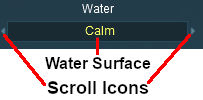 |
|
||||||
Set the Snow Altitude
| This sets the altitude at which objects with snow effects will display those effects. It has no effect on objects created without this feature |
|
|
|
| Settings: Enter the altitude, in metres, at which snow can appear. |
|
|
|
|
Trainz Wiki
 |
More Tutorials and Guides to Using Trainz |
